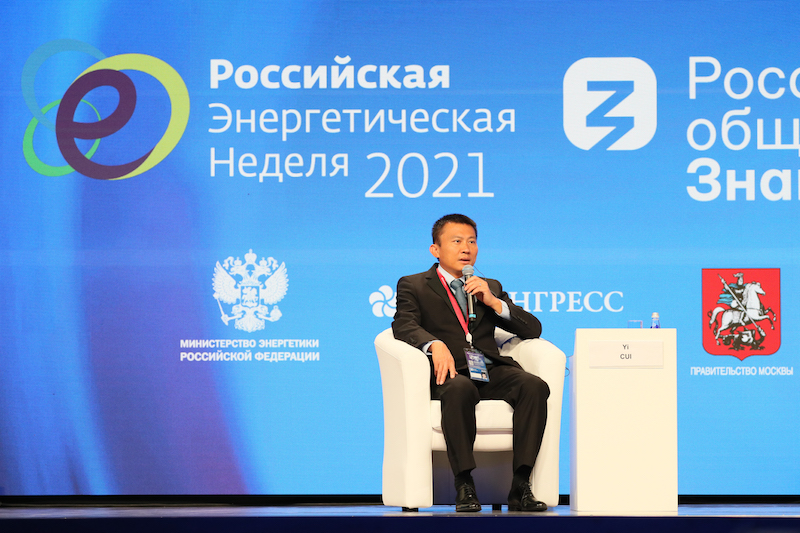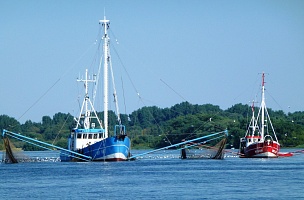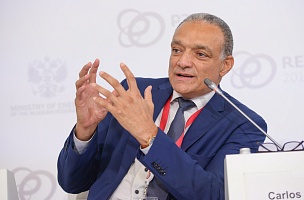KEY CONCLUSIONS
The petrochemical and petroleum refining industries are set to undergo global changes, including the implementation of innovations, green technologies, and professional training
“If, in the past, we talked about materials that are genuinely toxic and dangerous to individual people, now we're talking about a global problem related to climate change and greenhouse gas emissions. We’re talking about a low-carbon economy... This agenda will have a significant impact on petroleum refining and petrochemistry over the next 30 years… We need people that know how to translate knowledge from the language of those involved in basic research into the language of those who produce the final product, into business language. What's more, they will have to learn to create new engineering solutions. This is a special area of engineering, precisely what we must train a new generation of researchers and engineers for in the coming 5 to 10 years. Then, maybe, Russia might see a technological breakthrough,” Anton Maximov, Director, Institute of Petrochemical Synthesis. A.V. Topchieva of the Russian Academy of Sciences.
PROBLEMS
The industry is slow to integrate innovations
“If we are talking about petrochemistry, petroleum refining, or industrial sectors, these are sectors that are always slow to change. That is, change takes 20 to 30 years to happen. That which we currently call ‘green’ chemistry, a term that appeared in the early 1990s, is an entire complex of measures and technologies that replaced old technology, starting in 1990 and continuing through the past 30 years. It was more familiar to people than the ‘green’ agenda that exists today,” Anton Maximov, Director, Institute of Petrochemical Synthesis. A.V. Topchieva of the Russian Academy of Sciences.
“Of course, we talk a lot about solar energy and wind energy. They can supplement traditional energy sources and reduce CO2 emissions. Of course, this is a difficult problem and we will need, by my estimates, another 20–30 years for society to gradually find a solution,” Li Cui, Global Energy Prize Laureate; Director, Precourt Institute for Energy, Stanford University.
Rising polymer costs and consumption
“The post-COVID period led to rapidly rising prices… Supply will continue to increase, but so will demand. The issue is that developed countries are consuming a lot of petrochemicals, polymers… Demand for some petrochemical products has fallen, but we are all wearing masks. They contain petrochemical products. By sitting at home, you and I have increased the production and consumption of cosmetics, the consumption of packaging… In order to transition to a circular economy, you need money. And I think that money will come from consumers, including through price increases,” Anton Maximov, Director, Institute of Petrochemical Synthesis. A.V. Topchieva of the Russian Academy of Sciences.
“The technologies need to be clean, but, of course, they must also be economically viable, otherwise it'll be very difficult to implement these technologies and for society to accept them. Undoubtedly, this is probably one of the most difficult problems that we are still facing: how can we use interesting technology, make it economically efficient, profitable, and meanwhile scale it to a level where it affects all of society, so that this technology is economically viable and accepted by society,” Li Cui, Global Energy Prize Laureate; Director, Precourt Institute for Energy, Stanford University.
SOLUTIONS
Increasing the efficiency of raw materials processing, transitioning to biofeedstock, recycling
“Increasing the efficiency of raw materials processing relates to the processing of crude oil into petrochemicals. Petroleum refineries, it seems, will eventually turn into facilities that create raw materials or even new materials. This won't happen soon, but there are examples of this. <...> Another change in raw materials is, of course, a transition to biofeedstock. All plants are made of carbon. This carbon can be used. Generally speaking, this is a fundamentally different type of chemistry, fundamentally different processes, the very logic of the industry changes… All of the polymers that we have produced over the past 20 years have more or less been buried in landfills or, alternatively, incinerated. Now we have a third option: the carbon in these polymers can be returned to monomers in chemical products. Here we have a wide range of technologies for recycling polymer waste and a change in raw materials for petrochemistry and partially for petroleum refining,” Anton Maximov, Director, Institute of Petrochemical Synthesis. A.V. Topchieva of the Russian Academy of Sciences.
Transitioning to green hydrogen
“Electricity has become a new raw material, replacing regular fuels and energy sources that allow us to obtain valuable chemicals. Naturally, this brings up another point that will probably be very important in the next 10 to 15 years, that is the use of renewable hydrogen, called green hydrogen… in chemical production,” Anton Maximov, Director, Institute of Petrochemical Synthesis. A.V. Topchieva of the Russian Academy of Sciences.
“Hydrogen is very promising. We are already launching a number of new hydrogen initiatives related to the production of green hydrogen, its storage, transport, and of course, recycling. These are very important aspects,” Li Cui, Global Energy Prize Laureate; Director, Precourt Institute for Energy, Stanford University.
Developing nanotechnology
“For me, the most interesting sector is nanotechnology, because that is what can influence the development of electromobility technologies and the integration of solar and wind energy and its contribution to the power grid. Of course, this can help us reduce CO2 emissions, and also affect how we can, for example, create new masks for people, that we can wear every day and still effectively filter virus particles… protect against COVID-19,” Li Cui, Global Energy Prize Laureate; Director, Precourt Institute for Energy, Stanford University.
For more information go to the Roscongress Foundation Information and Analytical System roscongress.org.






